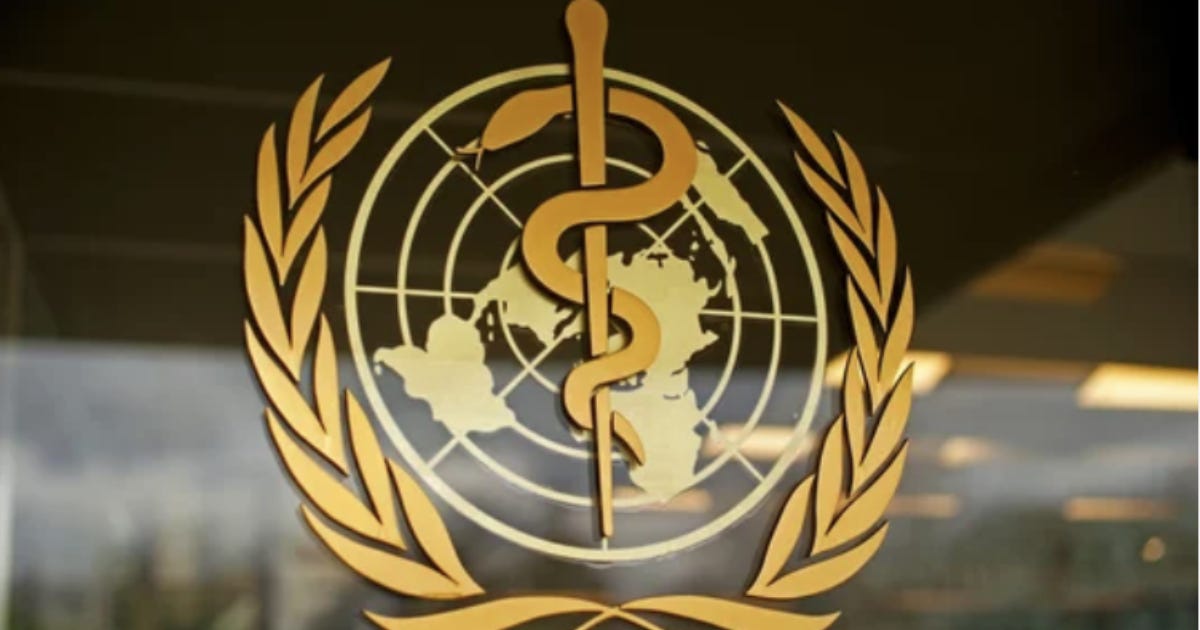Canada risks healthcare sovereignty with WHO global pandemic treaty: lawyers
Canadian constitutional advocates warn that Canada’s agreement to accept the WHO's global pandemic treaty as binding will cede Canada’s sovereignty to an unelected international group.
Canadian constitutional advocates warn that Canada’s agreement to accept the World Health Organization’s (WHO) global pandemic treaty as binding will cede Canada’s sovereignty to an unelected international group and violate the country’s constitution.
The Justice Centre for Constitutional Freedoms (JCCF) released a new report, authored by journalist and researcher Nigel Hannaford, outlining how Canada’s agreement to recognize the WHO’s revised International Health Regulations as binding could violate several sections of the Canadian Charter of Rights and Freedoms.
According to Canada’s Public Health website, Canada agreed to the WHO’s International Health Regulations on June 1, 2024. The WHO considers the regulations “binding” despite its inability to enforce them.
The agreements took effect on Sept. 19, 2025, but have been criticized by Conservative MP Leslyn Lewis and now the JCCF, for being agreed upon without parliamentary dialogue.
The agreements would allow the WHO director-general to declare a global health emergency and issue mandates on how Canada and member nations should respond. Once a “Pandemic Emergency” has been declared, member states are obligated to implement the WHO’s emergency measures “without delay.”
Allison Pejovic, a constitutional lawyer quoted in the report, warns that the agreement to treat the WHO’s edicts as binding “effectively placed Canadian sovereignty on loan to an unelected international body.”
Pejovic notes that in the absence of “proper parliamentary enactment,” directives from Geneva would “likely fail a constitutional challenge.” She said the mandates would fail as they originate outside Canada’s parliamentary system and could erode Charter-protected rights such as freedom of mobility, privacy, bodily autonomy and freedom of expression.
The report argues ceding sovereignty and democratic control over public health measures to the WHO, after “years of harmful guidance” from the organization, was “to lose a dollar on a dog race and then bet another dollar on the instant replay.”
Hannaford noted that WHO recommendations were often cited and used by Canadian politicians and health authorities to “publicly justify” several health measures that “infringed” on Canadians’ Charter rights or had disastrous effects on health and education.
WHO directives were used to require travellers to take COVID-shots, which are noted in the report as being a “substance described but not proven to be safe and effective,” before travelling. Despite “unvaccinated” individuals being barred from travel, the Omicron strain of the virus still spread to Canada via international travel in 2021.
The claim that COVID shots were “safe and effective” has also been questioned as the Canadian government has since opened a Vaccine Injury Support Program to compensate those injured from the supposedly “safe” shots.
Hannaford states in the report that WHO recommendations were often “contradictory and always politically biased.” He notes that the WHO “repeatedly deferred” to the political priorities of the People’s Republic of China, including by falsely reporting there was no “human-to-human transmission” and claimed the “draconian measures” recommended by the WHO often mirrored those used by China.
Other negative effects of the international organization’s recommendations include a 22 per cent increased death rate following the rollout of vaccines and a 15 per cent increase in Canadian children dying after the imposition of mandates and lockdowns.
The report noted significant declines in mental health, with 70 per cent of children and teens reporting negative mental health, alongside a surge in addiction and suicides. It also found plummeting physical activity, an increase in opioid deaths and a backlog from cancelled medical appointments and procedures. The report highlighted a spike in the cost of living, homicides and cybercrime, including child exploitation.
“In short, Canadian governments’ commitment to WHO policies had the exact opposite of the intended effect. Far from protecting life, government policies fuelled thousands of preventable deaths, eroded freedoms, and left a trail of social and economic harm.”
The report also cited statements from public health officials that showed WHO guidelines often took precedent over the existing knowledge and recommendations of Canadian officials.
The JCCF is calling for Canada to follow its international partners in Germany, Austria, Italy, the Czech Republic and the United States to continue “international cooperation” while also refusing subordination to the WHO by reversing its recognition of the organization’s authority.



The USA was warned about the WHO so were most countries.
The US listened and told the WHO to get lost.
Canada on the other hand continues to flush itself down the toilet and not that the Liberals need any help in doing that, that has not stopped them signing agreements with the UN, the WHO, etc.. etc.. all of which diminish Canada's sovereignty.
All done intentionally to that aforementioned.
It was what put the 2015 idiot into power and the current PM is here to finish the job.
The WHO should have no part in Canadian decision making regarding the health of Canadians, they can offer advice, it is up to Canada whether we except that advice